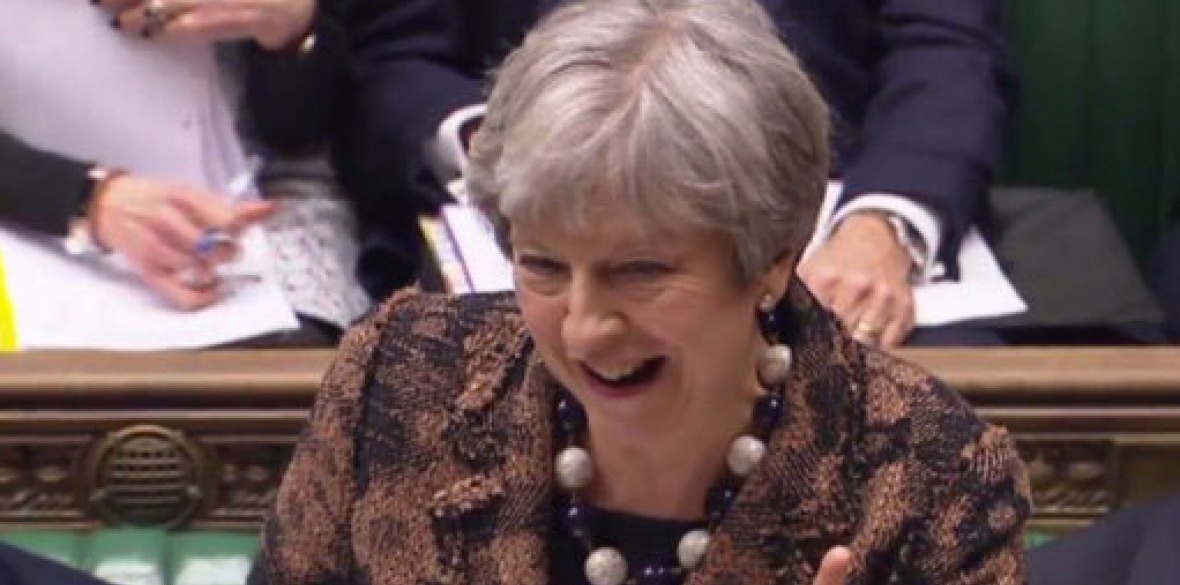This is the last article you can read this month
You can read more article this month
You can read more articles this month
Sorry your limit is up for this month
Reset on:
Please help support the Morning Star by subscribing here
THERESA MAY has a developed a formulaic response to social problems caused or exacerbated by her government’s failure to defend and extend the welfare state or protect all members of society.
Yes, the rhetoric runs, this is a problem, everyone deserves to have proper healthcare, housing, social care provision (delete as appropriate) and that’s why we’ve already set aside £x million to deal with it.
So that’s it. There’s a problem, we’re onto it, so get over it.
When shadow housing secretary John Healey points out that the number of rough sleepers has more than doubled since 2010 and is up 73 per cent in the last three years, May’s spokesman responds according to the formula.
Everyone “should have the security of a roof over their head,” we must help the most vulnerable and “we are providing over £1 billion of funding to tackle homelessness and rough sleeping.”
There is no attempt to explain why people are forced to sleep rough or why the situation has become so much worse under the Tories.
The English Housing Survey (EHS), published yesterday, offers some indications, noting that the number of residents renting in the private housing market rises inexorably while the proportion of owner-occupiers and council tenants continues to fall.
While the government is correct on a superficial level to insist that “tackling homelessness is a complex issue with no single solution,” it is impossible to ignore escalating prices in the private housing sector as a major cause.
There has been a concerted attack on council housing since the early 1980s when Tory prime minister Margaret Thatcher launched her campaign to sell homes to tenants at knockdown prices.
Not a government since then, of whatever political stripe, has accepted the need to invest in publicly owned rented homes at really affordable rents. They have maintained sales to sitting tenants and handed over entire estates either directly to the private sector or to arm’s length management organisations.
While the percentage of owner occupiers is still falling, the EHS survey reveals that 30 per cent of social tenants expect to buy a property at some point in the future, compared to 26.8 per cent in 2015-16 and 20.3 per cent in 2011-12.
If there is a material basis for these expectations, it is likely that they are looking at their existing council-owned homes rather than the private market where prices are rising in most parts of the country.
Reducing further the stock of public housing will oblige growing numbers of people who are unable to afford to buy a home to search in the private-rented sector.
Rising demand in the private-rented sector, especially in areas such as London where 30 per cent of the population are already private renters, will encourage greedy landlords to charge even higher rents.
This situation has not sneaked up on the government without warning. It was both foreseeable and foreseen but was not adjudged a problem by Tory MPs, many of whom are private landlords.
Slinging a few million pounds here and there at emergency provisions will not rid the country of homelessness and its worst aspect, rough sleeping.
Reliance on market mechanisms is utterly inadequate to deal with such problems. Having a roof over one’s head should be seen as a human right rather than as an abstract aspiration.
Tackling homelessness requires concrete targets, resources, government finance and a commitment to low-rent local authority homes.











